At TheHealthBoard, we're committed to delivering accurate, trustworthy information. Our expert-authored content is rigorously fact-checked and sourced from credible authorities. Discover how we uphold the highest standards in providing you with reliable knowledge.
What is a Caregiver?
A caregiver or carer is someone who provides assistance to another person who cannot live fully independently due to physical, psychological, or mental disability. Caregivers may have duties which are fairly light, such as stopping by someone's house every few days to tidy up, or the duties may be more involved, such as living with someone to provide constant assistance with a variety of tasks. Both volunteer and paid caregivers work all over the world.
Caregivers usually aim to provide as much support as possible, while helping someone retain independence, and in some cases, a caregiver may provide training which is designed to promote independence for the patient. Having a caregiver available can mean that someone does not need to be institutionalized, supporting independence for people who would prefer to remain at home. Using a caregiver can be financially efficient, as institutionalization can be extremely expensive, in addition to emotionally distressing.

In some cases, a caregiver has specialized training in medical care, so that he or she can give shots, change bandages, and perform other medical tasks. Other caregivers provide support which does not require special training, such as errand running, cleaning, assistance with paying bills, and so forth. In the case of paid caregivers, payment may be provided by the patient directly, or by a government agency or insurance company.

Many caregivers are family members, and they are often unpaid. This has been a source of friction in some nations, as many family caregivers argue that they should receive payments if they are caring for family members who require so much care that the caregiver cannot work at an ordinary job. Family caregivers can also experience considerable stress and strain because they are emotionally attached to the family members they care for, and they may create a rotating system which allows people to share responsibilities and rely upon assistance from friends as well.

Professional caregivers are usually used when a patient needs care which family members cannot provide, or when family members are not capable of providing care because they need to work. A paid caregiver may be a nurse, or someone with more limited medical training, and he or she can live in with a patient, or perform regular visits, depending on the needs of the patient. Families who rely on insurance or government assistance usually cannot get a paid caregiver unless a doctor indicates that it is medically necessary, or if family members can prove that providing care is posing an undue hardship.
AS FEATURED ON:
AS FEATURED ON:












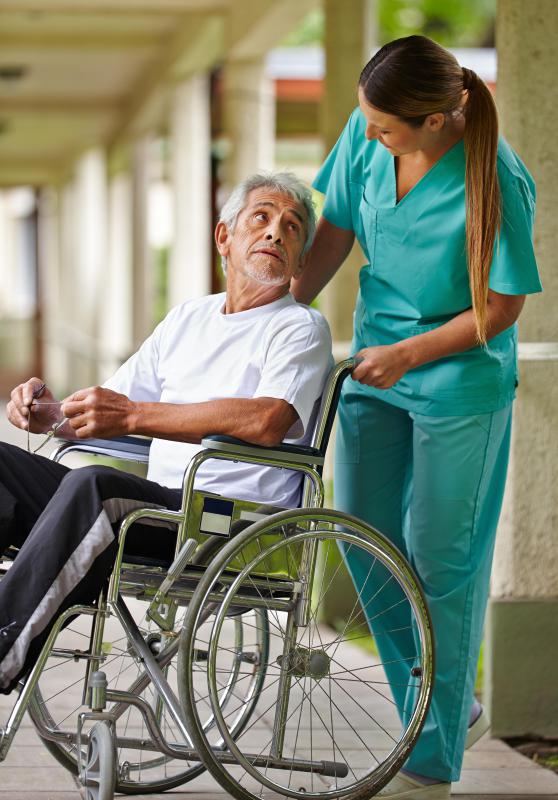
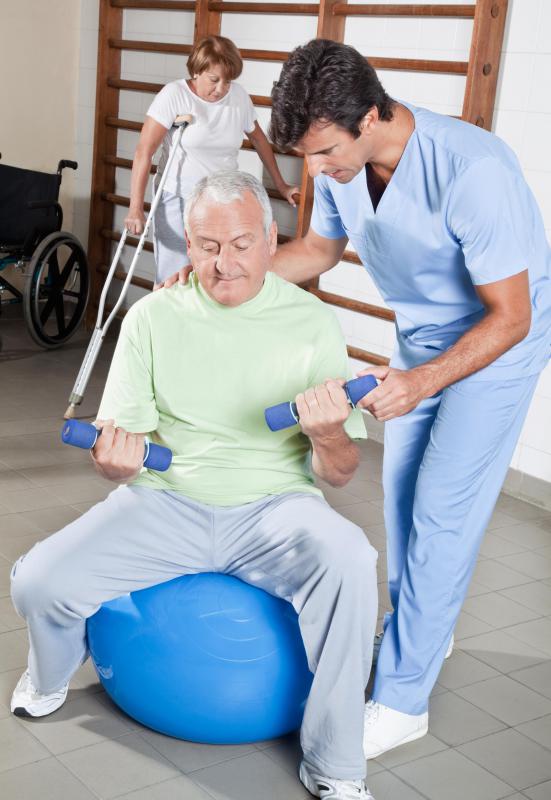
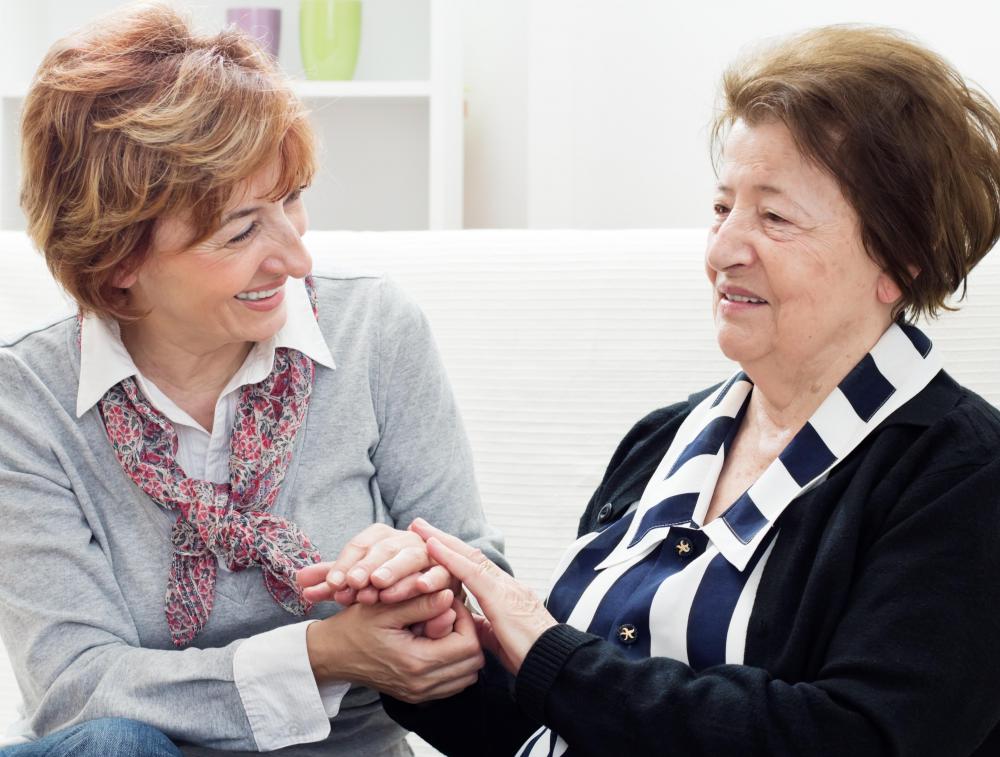
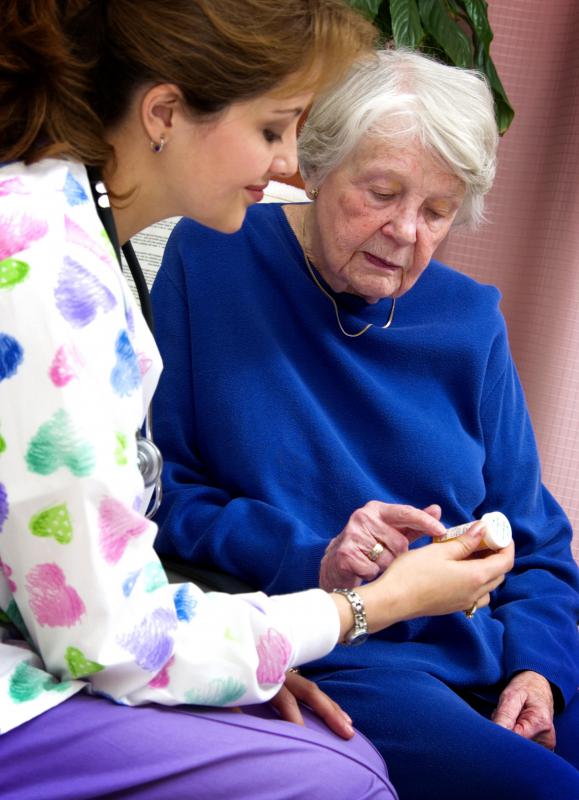


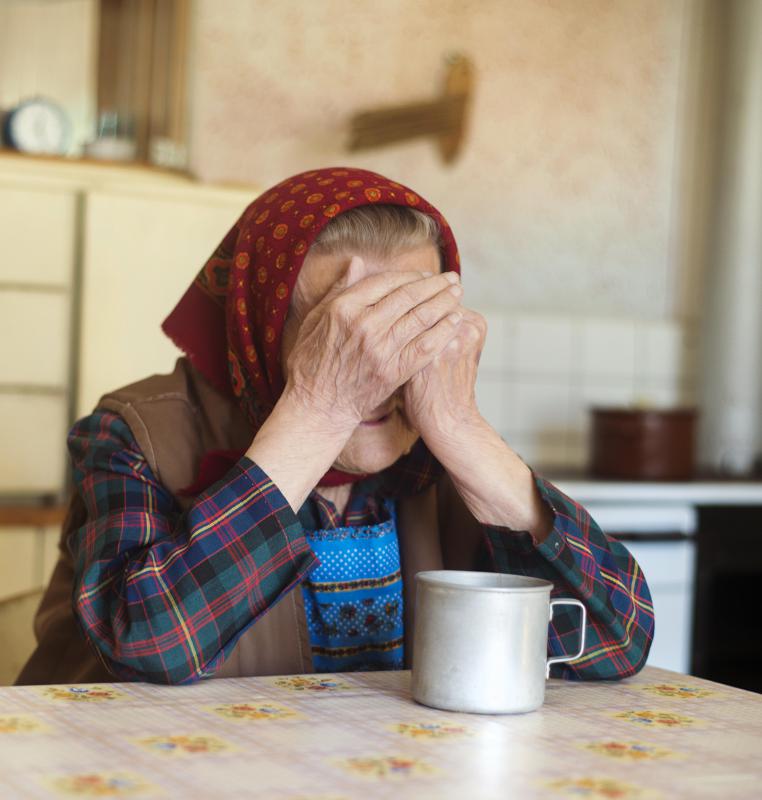
Discussion Comments
@cafe41 - You mentioned that some cultures assume people in need will be cared for by the family. (Unpaid of course.) This also extends beyond the elderly folk.
A friend of mine was working in South Korea last year. After slipping on some ice she was admitted to hospital with a broken ankle. Surprisingly the nursing staff are not trained to give a lot of personal care.
So while the other women in the room had family members staying with them and helping with washing and so on, she had to track down paid assistants who spoke English.
@Cafe41 -I agree and I wanted to say that my aunt has a caregiver stay with her a few nights a week and my aunt loves the companionship. This is another great thing that caregivers offer elderly patients because many have limited mobility and when someone comes in and focuses on them it can seem really nice to get that extra attention.
I think that it would be especially nice to be able to discuss current events and things unrelated to their health condition. I know my aunt really enjoys the companionship because she became a widow about a few years ago.
@ElizaBennett - I agree that this could be difficult, but there are cultures where it is expected to take care of elderly parents. It can be challenging.
I had a friend that cared for her ailing mother at home and had to quit her job because it just got to be too much. She said that this caused her to think about getting long term care insurance for herself and her husband so that they would have the money to have a full time caregiver in case they decided to stay in their home.
A lot of people don’t plan on end of life care because most people don’t want to think about it, but if you are close to 50, it is something to consider because the premiums are a lot cheaper if you start this early.
@rugbygirl - It sounds like your grandfather was very devoted to your grandmother! She was lucky to have him and it's definitely fortunate that they had good savings so he could have some caregiver relief.
One barrier with caregiving is that older people can be very proud; they don't always want to admit that they need help with cooking or driving or other little details like that. It has to be handled very delicately.
A family that I know has grandparents still going strong in their 90s (!) but they can no longer cook because their grandma left the stove on. So now a nephew's wife, who is a stay-at-home mom, brings their meals by for them. They think she does it just to be nice, but actually their children pay her. They have trouble with the idea of having a "professional caregiver," but the SAHM needs the money, so the "kids" (who are in their 60s themselves) have found this way around.
Being a caregiver is so much easier when there's enough money. My grandfather cared for my grandmother for eight years between her first stroke and her eventual passing. But they had plenty of money. So he hired a housekeeper to come in during the day. She did all the housework and a little light cooking, but Grandpa referred to her as "Grandma's companion" because she would also keep Grandma company during the day when Grandpa needed to run errands or had a club meeting to go to, that kind of thing.
He also had good family support. Their kids would take turns coming to visit, so several times a year he got relief from that, too. Even just knowing that he could have a third glass of wine because there was another adult in the house was such a lifting of the burden.
Post your comments